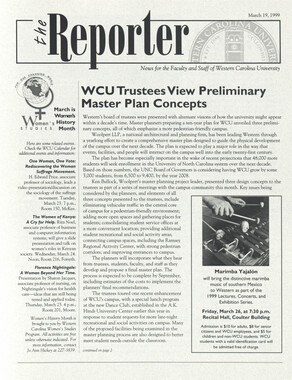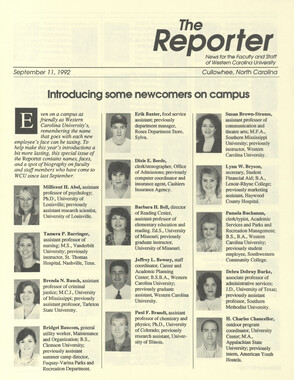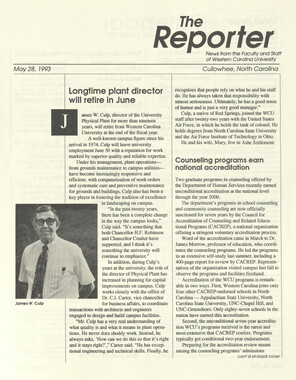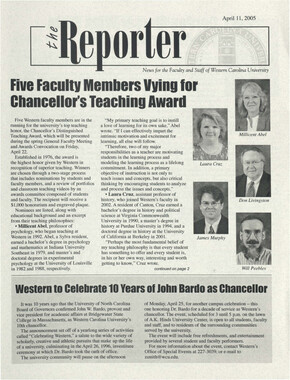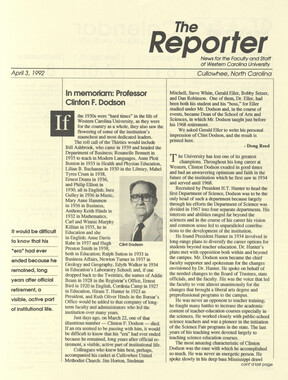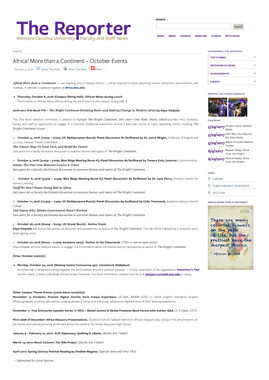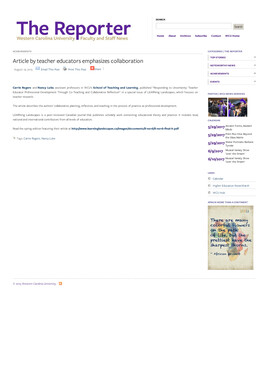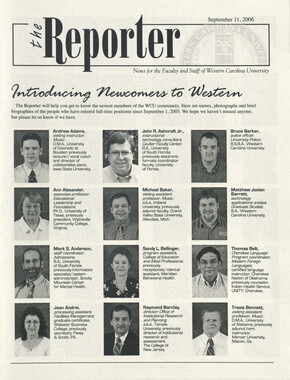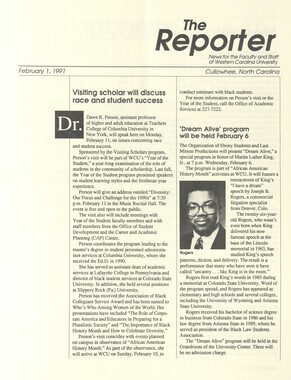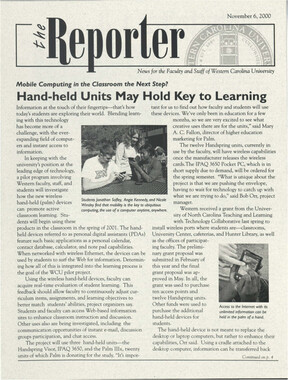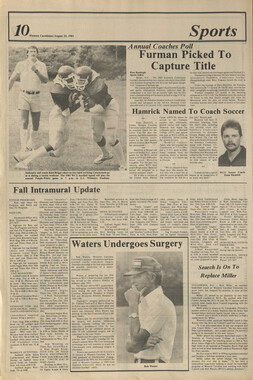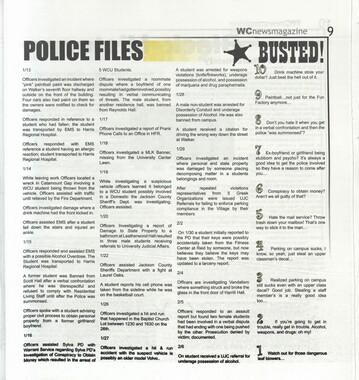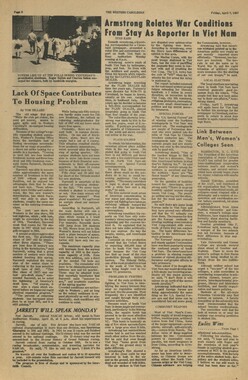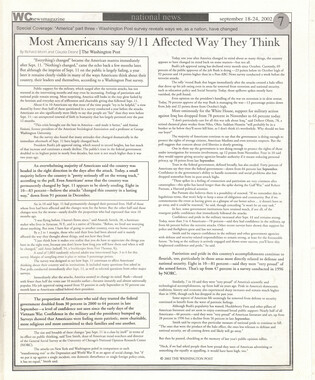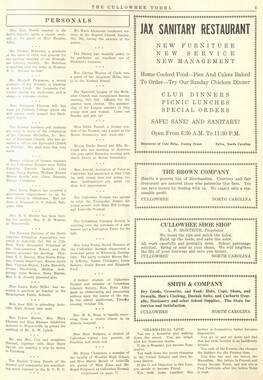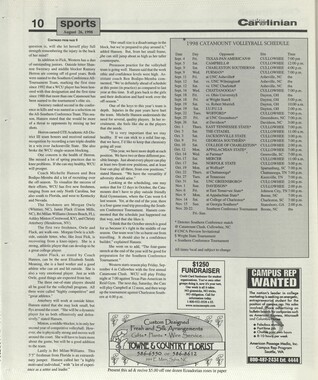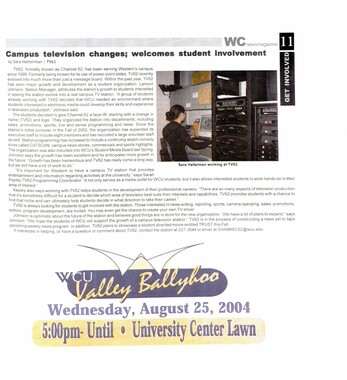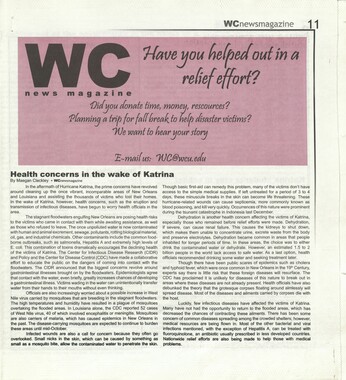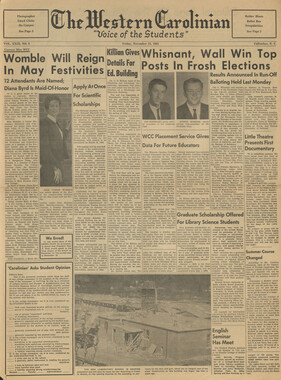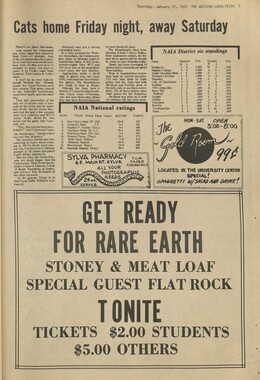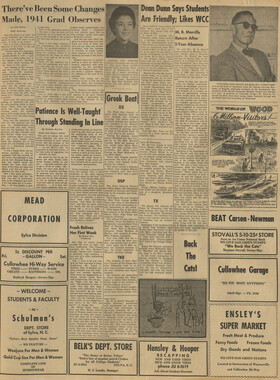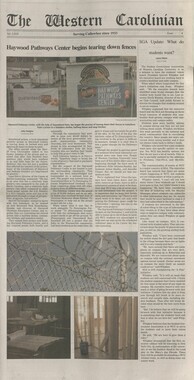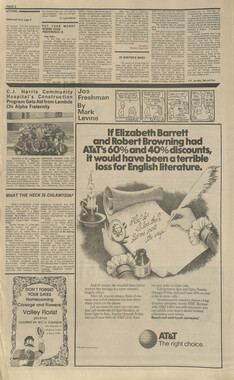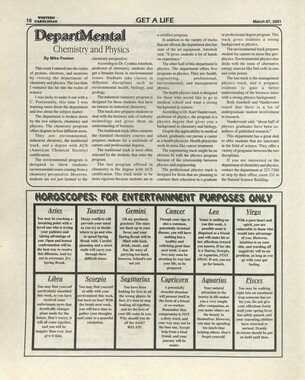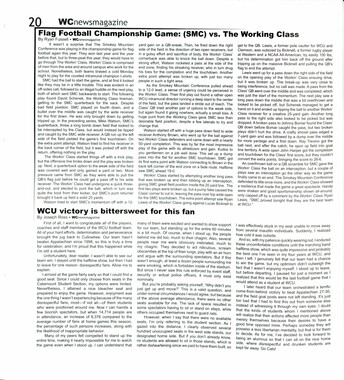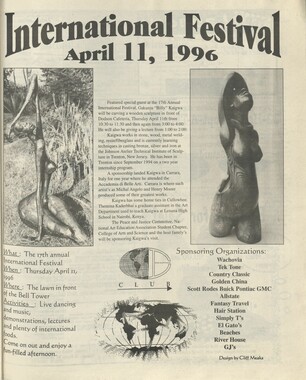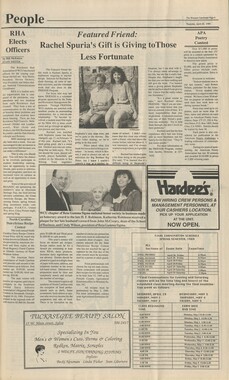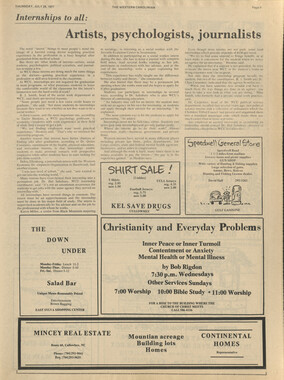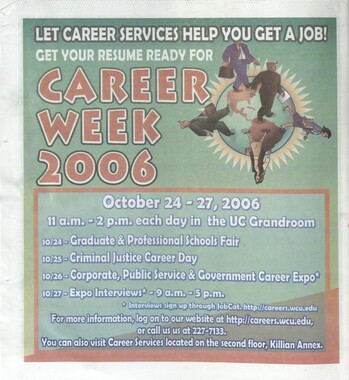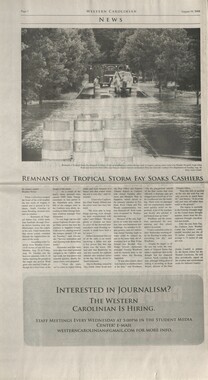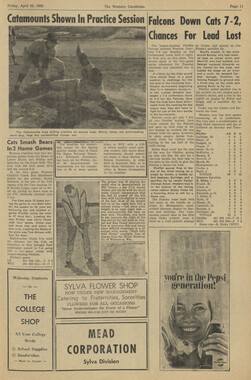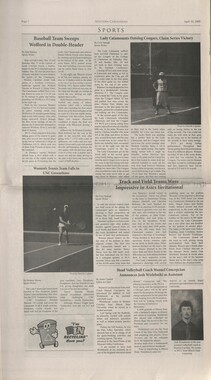Western Carolina University (20)
View all
- Canton Champion Fibre Company (2308)
- Cherokee Traditions (291)
- Civil War in Southern Appalachia (165)
- Craft Revival (1942)
- Great Smoky Mountains - A Park for America (2946)
- Highlights from Western Carolina University (430)
- Horace Kephart (941)
- Journeys Through Jackson (159)
- LGBTQIA+ Archive of Jackson County (85)
- Oral Histories of Western North Carolina (314)
- Picturing Appalachia (6873)
- Stories of Mountain Folk (413)
- Travel Western North Carolina (160)
- Western Carolina University Fine Art Museum Vitreograph Collection (129)
- Western Carolina University Herbarium (92)
- Western Carolina University: Making Memories (738)
- Western Carolina University Publications (2491)
- Western Carolina University Restricted Electronic Theses and Dissertations (146)
- Western North Carolina Regional Maps (71)
- World War II in Southern Appalachia (131)
University of North Carolina Asheville (6)
View all
- Allanstand Cottage Industries (62)
- Appalachian National Park Association (53)
- Bennett, Kelly, 1890-1974 (1463)
- Berry, Walter (76)
- Brasstown Carvers (40)
- Carver, George Washington, 1864?-1943 (26)
- Cathey, Joseph, 1803-1874 (1)
- Champion Fibre Company (233)
- Champion Paper and Fibre Company (297)
- Cherokee Indian Fair Association (16)
- Cherokee Language Program (22)
- Crowe, Amanda (40)
- Edmonston, Thomas Benton, 1842-1907 (7)
- Ensley, A. L. (Abraham Lincoln), 1865-1948 (275)
- Fromer, Irving Rhodes, 1913-1994 (70)
- George Butz (BFS 1907) (46)
- Goodrich, Frances Louisa (120)
- Grant, George Alexander, 1891-1964 (96)
- Heard, Marian Gladys (60)
- Kephart, Calvin, 1883-1969 (15)
- Kephart, Horace, 1862-1931 (313)
- Kephart, Laura, 1862-1954 (39)
- Laney, Gideon Thomas, 1889-1976 (439)
- Masa, George, 1881-1933 (61)
- McElhinney, William Julian, 1896-1953 (44)
- Niggli, Josephina, 1910-1983 (10)
- North Carolina Park Commission (105)
- Osborne, Kezia Stradley (9)
- Owens, Samuel Robert, 1918-1995 (11)
- Penland Weavers and Potters (36)
- Roberts, Vivienne (15)
- Roth, Albert, 1890-1974 (142)
- Schenck, Carl Alwin, 1868-1955 (1)
- Sherrill's Photography Studio (2565)
- Southern Highland Handicraft Guild (127)
- Southern Highlanders, Inc. (71)
- Stalcup, Jesse Bryson (46)
- Stearns, I. K. (213)
- Thompson, James Edward, 1880-1976 (226)
- United States. Indian Arts and Crafts Board (130)
- USFS (683)
- Vance, Zebulon Baird, 1830-1894 (1)
- Weaver, Zebulon, 1872-1948 (58)
- Western Carolina College (230)
- Western Carolina Teachers College (282)
- Western Carolina University (2008)
- Western Carolina University. Mountain Heritage Center (18)
- Whitman, Walt, 1819-1892 (10)
- Wilburn, Hiram Coleman, 1880-1967 (73)
- Williams, Isadora (3)
- Cain, Doreyl Ammons (0)
- Crittenden, Lorraine (0)
- Rhodes, Judy (0)
- Smith, Edward Clark (0)
- Appalachian Region, Southern (2569)
- Asheville (N.C.) (1923)
- Avery County (N.C.) (26)
- Blount County (Tenn.) (195)
- Buncombe County (N.C.) (1672)
- Cherokee County (N.C.) (283)
- Clay County (N.C.) (555)
- Graham County (N.C.) (236)
- Great Smoky Mountains National Park (N.C. and Tenn.) (519)
- Haywood County (N.C.) (3569)
- Henderson County (N.C.) (70)
- Jackson County (N.C.) (4912)
- Knox County (Tenn.) (35)
- Knoxville (Tenn.) (13)
- Lake Santeetlah (N.C.) (10)
- Macon County (N.C.) (420)
- Madison County (N.C.) (215)
- McDowell County (N.C.) (39)
- Mitchell County (N.C.) (132)
- Polk County (N.C.) (35)
- Qualla Boundary (982)
- Rutherford County (N.C.) (76)
- Swain County (N.C.) (2182)
- Transylvania County (N.C.) (270)
- Watauga County (N.C.) (12)
- Waynesville (N.C.) (86)
- Yancey County (N.C.) (72)
- Aerial Photographs (3)
- Aerial Views (60)
- Albums (books) (4)
- Articles (1)
- Artifacts (object Genre) (228)
- Bibliographies (1)
- Biography (general Genre) (2)
- Cards (information Artifacts) (38)
- Clippings (information Artifacts) (191)
- Copybooks (instructional Materials) (3)
- Crafts (art Genres) (622)
- Depictions (visual Works) (21)
- Design Drawings (1)
- Drawings (visual Works) (185)
- Envelopes (73)
- Exhibitions (events) (1)
- Facsimiles (reproductions) (1)
- Fiction (general Genre) (4)
- Financial Records (12)
- Fliers (printed Matter) (67)
- Glass Plate Negatives (381)
- Guidebooks (2)
- Internegatives (10)
- Interviews (815)
- Land Surveys (102)
- Letters (correspondence) (1013)
- Manuscripts (documents) (618)
- Maps (documents) (177)
- Memorandums (25)
- Minutes (administrative Records) (59)
- Negatives (photographs) (6090)
- Newsletters (1290)
- Newspapers (2)
- Notebooks (8)
- Occupation Currency (1)
- Paintings (visual Works) (1)
- Pen And Ink Drawings (1)
- Periodicals (193)
- Personal Narratives (10)
- Photographs (12976)
- Plans (maps) (1)
- Poetry (5)
- Portraits (4568)
- Postcards (329)
- Programs (documents) (181)
- Publications (documents) (2443)
- Questionnaires (65)
- Relief Prints (26)
- Sayings (literary Genre) (1)
- Scrapbooks (282)
- Sheet Music (2)
- Slides (photographs) (402)
- Songs (musical Compositions) (2)
- Sound Recordings (796)
- Specimens (92)
- Speeches (documents) (18)
- Tintypes (photographs) (8)
- Transcripts (322)
- Video Recordings (physical Artifacts) (23)
- Text Messages (0)
- A.L. Ensley Collection (275)
- Appalachian Industrial School Records (7)
- Appalachian National Park Association Records (336)
- Axley-Meroney Collection (2)
- Bayard Wootten Photograph Collection (20)
- Bethel Rural Community Organization Collection (7)
- Blumer Collection (5)
- C.W. Slagle Collection (20)
- Canton Area Historical Museum (2110)
- Carlos C. Campbell Collection (462)
- Cataloochee History Project (64)
- Cherokee Studies Collection (4)
- Daisy Dame Photograph Album (5)
- Daniel Boone VI Collection (1)
- Doris Ulmann Photograph Collection (112)
- Elizabeth H. Lasley Collection (1)
- Elizabeth Woolworth Szold Fleharty Collection (4)
- Frank Fry Collection (95)
- George Masa Collection (173)
- Gideon Laney Collection (452)
- Hazel Scarborough Collection (2)
- Hiram C. Wilburn Papers (28)
- Historic Photographs Collection (236)
- Horace Kephart Collection (861)
- Humbard Collection (33)
- Hunter and Weaver Families Collection (1)
- I. D. Blumenthal Collection (4)
- Isadora Williams Collection (4)
- Jesse Bryson Stalcup Collection (47)
- Jim Thompson Collection (224)
- John B. Battle Collection (7)
- John C. Campbell Folk School Records (80)
- John Parris Collection (6)
- Judaculla Rock project (2)
- Kelly Bennett Collection (1482)
- Love Family Papers (11)
- Major Wiley Parris Civil War Letters (3)
- Map Collection (12)
- McFee-Misemer Civil War Letters (34)
- Mountain Heritage Center Collection (4)
- Norburn - Robertson - Thomson Families Collection (44)
- Pauline Hood Collection (7)
- Pre-Guild Collection (2)
- Qualla Arts and Crafts Mutual Collection (12)
- R.A. Romanes Collection (681)
- Rosser H. Taylor Collection (1)
- Samuel Robert Owens Collection (94)
- Sara Madison Collection (144)
- Sherrill Studio Photo Collection (2558)
- Smoky Mountains Hiking Club Collection (616)
- Stories of Mountain Folk - Radio Programs (374)
- The Reporter, Western Carolina University (510)
- Venoy and Elizabeth Reed Collection (16)
- WCU Gender and Sexuality Oral History Project (32)
- WCU Mountain Heritage Center Oral Histories (25)
- WCU Oral History Collection - Mountain People, Mountain Lives (71)
- WCU Students Newspapers Collection (1923)
- Western North Carolina Tomorrow Black Oral History Project (69)
- William Williams Stringfield Collection (2)
- Zebulon Weaver Collection (109)
- African Americans (390)
- Appalachian Trail (35)
- Artisans (521)
- Cherokee art (84)
- Cherokee artists -- North Carolina (10)
- Cherokee language (21)
- Cherokee pottery (101)
- Cherokee women (208)
- Church buildings (189)
- Civilian Conservation Corps (U.S.) (111)
- College student newspapers and periodicals (2012)
- Dams (107)
- Dance (1023)
- Education (222)
- Floods (61)
- Folk music (1015)
- Forced removal, 1813-1903 (2)
- Forest conservation (220)
- Forests and forestry (1184)
- Gender nonconformity (4)
- Great Smoky Mountains National Park (N.C. and Tenn.) (181)
- Hunting (45)
- Landscape photography (25)
- Logging (119)
- Maps (83)
- Mines and mineral resources (8)
- North Carolina -- Maps (18)
- Paper industry (38)
- Postcards (255)
- Pottery (135)
- Railroad trains (72)
- Rural electrification -- North Carolina, Western (3)
- School integration -- Southern States (2)
- Segregation -- North Carolina, Western (5)
- Slavery (5)
- Sports (452)
- Storytelling (243)
- Waterfalls -- Great Smoky Mountains (N.C. and Tenn.) (66)
- Weaving -- Appalachian Region, Southern (280)
- Wood-carving -- Appalachian Region, Southern (328)
- World War, 1939-1945 (173)
The Reporter, May 1990
-
The Reporter is a publication produced by Western Carolina University featuring news, events, and campus community updates for faculty and staff. The publication began in August of 1970 and continues digitally today. Click on the link in the “Related Mate
-
-
Re™p NKo /e/mw . s/<« /foArrr the tFaceuiHlt~y\ / ^annWrd CS-ft/aor fl f of Western Carolina University May 4, 1990 Cullowhee,North Carolina School of Business earns reaccreditation w WCU's business school joins those at the University of North Carolina at Chapel Hill and Duke University with coveted nine-year accreditation. estern Carolina University's School of Business has achieved full reaccreditation of its baccalaureate and master's degree programs as a result of the vote of the Accreditation Council of the American Assembly of Collegiate Schools of Business (AACSB). The announcement came at the organization's annual meeting in April in San Francisco, Calif., attended by nearly 1,000 business school deans and corporate representatives from around the world. "North Carolina is recognized across the United States for the quality of its higher education system, and our school's accomplishment confirms the faith of North Carolinians in striving for excellence," said John McCreary, dean of the School of Business. "This continued accreditation decision by the AACSB marks the third consecutive unanimous endorsement of our business school by the Accreditation Council. We join the University of North Carolina at Chapel Hill and Duke University with a nine-year accreditation period." Approximately 1,200 universities in the United States offer undergraduate business programs, but only 240 have baccalaureate and master's programs accredited by the AACSB. To achieve accreditation, a business school must meet a wide range of quality standards relating to curriculum, faculty resources, admissions, degree requirements, library and computer facilities, financial resources, and intellectual climate. During the reaccreditataion process, Western Carolina University was evaluated by business school deans and corporate representatives with detailed knowledge of management education, applying standards widely accepted in the educational community. Richard Sorensen, dean of the College of Business at VPI and chairman of the AACSB Visit Team to WCU, complimented the business school's leadership and strategic planning process. "The development and utilization of individual Inside: spring general faculty meeting - summary of comments, awards. development pains for the faculty represent an excellent model for professional business schools to follow," he stated. The Continuing Accreditation Committee of AACSB praised the balanced approach to teaching and research evidenced in the WCU School of Business. More than eighty percent of all undergraduate students are instructed by faculty with business experience and the Ph.D. degree. "By developing intelligible procedures to be followed in appointing graduate faculty and by using well-defined criteria which stress the importance of achievement in teaching and research, effective management practices with the School of Business at WCU are clearly revealed," the Committee observed. The Committee praised the commitment of Western's business school for its high quality off-campus instruction involving the M.B.A. degree in Asheville and the offering of undergraduate courses in Jamaica. The visit team report prepared by Sorenson stressed the quality of the undergraduate business curriculum. The team observed, 'The undergraduate curriculum is built on a solid foundation of work in the arts and sciences." The team noted that the school has carefully avoided lock-step programs for both undergraduate and graduate students. "Students are not cloned. There is a conscious effort at Western to educate the 'whole' student by encouraging students to exercise good judgment in choosing elective courses thereby managing their own growth and development" The visit team commended Western for taking the leadership role in the education of project managers. The participation of professionals in the Project Management Institute in working with the faculty at WCU to create the first fully accredited program by this field in the United States is applauded, the team asserted. "The Master of Project Management degree program is a program well suited to the western region of North Carolina," Sorensen said. "Both Western Carolina University and the School of Business are to be congratulated for the upward trend in average SAT scores exhibited over the past several years," the Continuing cont'd School of Business cont'd Accreditation Committee concluded. The Committee positively noted institutional data which show that graduates from business programs possess the highest SAT scores among Western's graduates. The Continuing Accreditation Committee, "in recognition of the School's effective leadership, an outstanding self-study document, clearly stated goals and objectives, a cluster of professional faculty in each discipline, increasingly higher cre-dentialed students and graduates, a sound curriculum, demonstrated innovative educational activities, and excellence in microcomputing and library resources," approved a nine-year accreditation for WCU's business school. "As significant as this decision by the AACSB is," Dean McCreary added, "it serves as a harbinger of things to come." Western's business school intends to launch an international business administration program in the fall of 1991, build upon its increasing activities in the European community, provide enhanced regional services to meet needs of the business community, establish new endowed funds to reward and support outstanding juniors and seniors majoring in business, explore multi-media approaches to business education, cooperate with other schools on campus in developing a technologically advanced waste cycling and management program, and seek new approaches to meeting the continuing education requirements of the citizens of North Carolina's sixteen western counties. "That's a mighty ambitious agenda," McCreary acknowledged. "However, we became one of the nation's more outstanding business schools because of what we accomplish, which gives us the thrust to meet future challenges." AACSB, a not-for-profit organization of more than 800 educational organizations and corporations devoted to the improvement of higher education in business administration and management, is recognized by the United States Department of Education and the Council on Post-Secondary Accreditation as the sole accrediting agency for bachelor's and master's degree programs in business administration. alendar WESTERN CAROLINA UNIVERSITY Monday 1 14 Reception for photographic exhibit by Dr. Lee Minor. City Lights Gallery, Sylva, 4-6 p.m. 21 Tuesday 8 15 22 Wednesday 9 16 23 1989-90 faculty and staff awards Top faculty and staff awards, and their recipients, for 1989-90, presented April 27 at the spring General Faculty Meeting and Awards Convocation: • Chancellor's Distinguished Teaching Award ($1,000) - Dr. Robert B. Pittman, professor of education. • Paul A. Reid Distinguished Service Awards for administrative staff and faculty ($1,000 each) - Dr. Doug Davis, assistant vice-chancellor for student development; and Dr. Fred Hinson, associate professor of biology • Academic Award of Exellence ($10,000) - Department of Music • University Award for Creative Research ($1,000) - Dr. Max Williams, professor of history • Taft B. Botner Superior Teaching Award - Dr. Ellen Hedrick Bacon, assistant professor of special education • STAR (Supporting Teaching and Research) Award - Undergraduate Deans and University Librarian May 4, 1990 The Reporter May 7-27 Thursday 10 Movie, Rabbit Hill. Jackson County Public Library, Sylva, 3:30 and 7 p.m. Free. 17 Movies, Rodeo Red and the Runaway and Hang Your Hat on the Wind. Jackson County Public Library, Sylva, 3:30 and 7 p.m. Free. 24 Movies, Rusty and the Falcon and The Silver Fox and Sam Davenport. Jackson County Public Library, Sylva, 3:30 and 7 p.m. Free. Friday 1 1 Golf, Catamount Club tournament. Mill Creek Golf Club, Franklin. For more information, call 227-7377. 18 25 Saturday 12 Track, Cats at Southern State Classic. Boone. 19 Golf, Catamount Club tournament. Holly Forest Golf and Country Club, Sapphire Valley. For more information, call 227-7377. Track, Cats at Clemson Classic. Clemson, S.C. 26 Sunday 13 Mother's Day 20 27 Landscape photographs by Lee Minor, associate professor of mathematics, will be on display at City Lights Gallery in Sylva during May. A public reception will be held Monday, May 14. For information, call City Lights at 586-9499. Exhibits Photographs of mountain scenes by Larry Tucker, photographs of Southern Appalachian wildflowers by Dr. James Wallace, and "Diversity Endangered," a poster exhibit. Natural Sciences Building, 7:30 a.m.-10 p.m. weekdays. "The School at Cullowhee," a historical exhibit; "Bells in the Valley," a historical slide show on WCU; and "Migration of the Scotch-Irish People," a permanent exhibit. Mountain Heritage Center, 8 a.m.-5 p.m. Monday-Friday and 2-5 p.m. Sunday. The Reporter May 4, 1.990 . it has been a very rewarding centennial year, but at the same time, a very demanding year." - Dr. Jim Wallace May 4. Speakers discuss policy changes, accomplishments A number of significant comments were made during the general faculty meeting in the Music Recital Hall on April 27. closing the 1989-90 academic year. Following is a summary of comments delivered at the gathering, attended by most of th e faculty. DR. JIM WALLACE, Chairman of the Faculty: I would like to thank you for electing me to a second term as chair of the faculty. I appreciate it, and I hope I carry out everything that needs to be done. In my opinion, it has been a very rewarding centennial year, but at the same time, a very demanding year. We have brought some famous scholars to our campus, have honored many of our distinguished alumni, have celebrated ourselves, and will continue to do this in the next two weeks at the centennial celebration teaching retreat sponsored by the Faculty Center for Teaching Excellence. I hope to see a lot of you there. Faculty Senate. What I would like to do is to summarize a few of the items that the Faculty Senate has accomplished this year, things that you should be aware of. The first item, hopefully, all of you are aware of, and that is the new governance document. It goes into effect on July 1. Basically, what it has done is replace five standing committees, and sixteen subcommittees, with five councils. I would like to read the names of the councils and the chairs of those councils. The Council on Instruction and Curriculum is going to be chaired by Terry Kinnear; the Council on Faculty Affairs is going to chaired by Fred Hinson; the Council on Institutional Effectiveness is going to be chaired by Fran Webster; the Council on Student Affairs will be chaired by Kathy Wright; and the Council on Internal and External Relations is going to be chaired by Lewis Sutton. In addition to the ten subcommittees, there are two— the Patents Committee and the Welfare of Experimental Subjects Committee—that will report directly to the Research Council.... Retention, withdrawal policies. We have redefined the GPA as relates to academic warning, academic probation, academic suspension. The information presented in the handbook for students will be much easier to understand than the former catalogs. The one thing we did tack on to the old process was [that] failure to meet the guidelines of academic probation, or any other stipulated condition, may result in automatic academic probation. That's a new thing that th e students should be aware of. The last thing I want to mention relative to what the Senate has done was just passed during our last Senate meeting. We have been working for months on a course withdrawal policy. But as of now—I'm assuming it's going to go all the way through—Western Carolina University is no longer the most lenient campus in the system relative to the accessibility of a "W" grade. The basic changes include the following. There are two major changes. Number 1: The grace period is going to extend for fifty percent of the terms. Instead of five weeks, it' ll be about seven weeks. The Senate would encourage all instructors to give an examination or have some kind of evaluation process done before the grace period is over. Most of us do this. There are a few that do not, and we would like to encourage you to do so. And secondly, after fifty percent of the term has expired, no "W" will be given, except for health, medical, and legal reasons, or in conjunction with withdrawal from the university. This is basically a very new part of the policy. I t's been very easy to get a "W," until next year. After the grace period, a request for a "W" must include written verification by a university physician, a Counseling Center counselor, or an official of a court of law. It must also have the written approval of the instructor, advisor, and head of the department in which the course is being taught. We also tightened up the course-repeat policy. This was done early this year. A student is now allowed to repeat a maximum of five courses, but no more than fifteen semester hours. After this has been met, all hours attempted will be used to compute the student's GPA. I would appreciate it if you would inform your students of these last two policies. I'll most likely mention them again next fall because they are different than the students have been used to. Report from the Faculty Assembly. The other thing I want to talk about briefly is a report from the Faculty Assembly. Fred Hinson [WCU professor of biology and president of the UNC Faculty Assembly] gave me this report and asked me to read it to you. The Assembly is meeting today, so our representatives to the Assembly could not be here. The Faculty Assembly is composed of fifty delegates, representing all campuses. The number of delegates is determined by the number of FTE students on each campus. We have three [delegates], Fred says you'll be interested in the areas the assembly has advised President Spangler on this year. The first one of these is the library budgets. They have not reflected inflation rates for the past ten years. Shortages in research and teaching resources have resulted in cutbacks in periodical subscriptions and the number of books ordered. I think we have also felt that crunch here. The second thing he wants you to be aware of are the repairs, renovations, and improvements of buildings and equipment throughout the system. There were some urgent needs. Last year there was a $90 million short-fall that existed between the requested pnd appropriated funds. The assembly requested the President study the role accrediting agents play in prescribing academic programs. The assembly recommended that President Spangler's staff have a leadership role in addressing child care needs for university employees. They also asked for consideration concerning the The Reporter athletic committees on all campuses. They recommended that a voting majority be elected by and from the faculty; that a chair for this committee be elected by the faculty membership; that the committee include an NCAA representative; that there are annual reports given to the faculty; and the maintenance of academic standards for student athletes. The assembly has also requested the President to encourage chancellors to provide a budget and release time for the Faculty Senate chairs. In 1989-90, nine of the sixteen constituent campuses provided this. Some other matters that Fred thought you might be interested in include: The assembly is monitoring the drug policy to assure due process, and the assembly is reviewing tenure and promotion procedures within the whole system. And finally, I think you'd like to know that the Faculty Assembly supports WCU's application—the so-called FIPSE proposal—asking for money to be used for the improvement of teaching practice, such as the Center for Teaching Excellence. The assembly has had a very productive year. Your delegates have been pleased to represent the faculty of Western Carolina University in Chapel Hill. Fred Hinson of the Department of Biology is finishing six years of service. The last two, as you are all aware, he served as chair of the Faculty Assembly. Bill Kane has served one of his three-year terms. Nancy Joyner will serve her sixth and final year in 1990-91. Max Williams of the Department of History will begin his three-year term in the fall. DR. MYRON L. COULTER, Chancellor: We are winding down to the conclusion of another good year at Western .... We weathered this year very well, in spite of our treasury's falling far short of projected revenues in the state. We've come through in very good condition. Role and mission. Recently President Spangler and the Board of Governors have directed each of the sixteen institutions of our system to review its role and mission with a view toward any new programs or any needs of the institution during the coming decade. We are now beginning that exercise that will last for the next several months. We've been given a very, very short timetable. The report from each institution will be due in Chapel Hill in January of 1991, and so we will be rather hurriedly, but thoroughly, looking throughout the university at ourselves in order to determine what we think as an institution we should become and how we should appear and what we should be within the next ten years. Just today I have appointed a committee of faculty and staff and the chairman of our board of trustees to engage in initiating this study and preparing the report, which will be reviewed in December by our board of trustees after having been throughout our institution .... So Ih ope that you will participate in that study. More information will be coming to you in the very near future about that. NCAA sanctions. We received a clean bill of health for our basketball program from the NCAA, and at long last. We have a letter now which expresses their sentiments to us, after we have expressed our sentiments to them. Our The Reporter violations which we found were originally classified as major violations, which was not a happy circumstance, but they were subsequently classified as secondary violations, which to all of us was a great relief. The reduction in severity of classification was due in large measure to the corrective actions which we took after our own investigations. So our basketball program will incur no sanctions from the NCAA, and that issue now is something that is behind us. Fourth-quarter allotments. The Office of State Budget and Management has now determined the amount of funds that will now b e available to Western Carolina University and all our other sister institutions for expenditure in the final quarter of the current fiscal year. Based on this allotment, it appears that spending constraints already initiated by the university will be sufficient to enable us to operate within the authorized funds, and that more extreme reductions will not be required. The allotment initially issued for fourth quarter called for cuts of $200,000 beyond those already anticipated. However, negotiations between the university and state budget officials have resulted in approval to redirect salary savings from positions vacant in the third quarter in order to close the additional gap in fourth-quarter spending. Western Carolina University's total allotments for the 1989-90 fiscal year will be $1.2 million less in state general fund appropriations than would be required to fund fully the authorized budget. This is a reduction of 3.5 percent. To achieve the necessary savings, the university has imposed limits on various kinds of spending. Vacancies are being maintained in approximately ten staff positions. Expenditures for temporary and part-time employment have been reduced. All divisions of the university have been called upon to defer or forgo purchases of some equipment and supplies, nonessential travel, and other support expenditures. Energy conservation measures are being applied to reduce our utility costs. The limits that have been enacted have indeed been hurtful to the university, but not crippling. They are designed to defer, rather than to eliminate, provision of the support needed to carry on normal university operations. Care has been taken to disperse the impact of the cuts across the university and at the same time to preserve the priority of academic programs and services. Teaching and learning have not been interrupted, and we believe that no lasting harm has been done thus far to any of our university programs and services. I point that out to you because there have been instances where institutions have said they could no longer operate, they could not give final examinations, they could not complete the year, and so forth. We're no better off than they are, a s far as the level of funding is concerned. The same level of cuts was applied to us as to anyone else. We will finish our year; we've almost done it. And so we will come out of this, as we always try to do, taking care of ourselves and yet not creating irreparable harm to our institution's academic programs. cont'd "The strength of this university is the faculty and the students, as well as our alumni I appreciate very much what you have done." - Chancellor Myron L. Coulter May 4. The Reporters published by the Office of Public Information. Mail notices and changes of address to the Reporter, 1601 Ramsey Center. 1,450 copies of this public document were printed at a cost of $217, or $.15 per copy. Western Carolina University is an Equal Opportunity Institution. Speakers cont'd Enrollment figures. Our enrollments look good for the fall of 1990. We should enroll around 1,250 new freshmen, slightly lower than last year, but deliberately so. Our applications for freshmen were only a little bit behind the record number of 1989, and our transfer student applications have increased by thirty percent. So we should have only forty or fifty fewer freshmen and perhaps a hundred more transfers than last fall for a good solid enrollment for the fall of 1990-91. We're right on target with our enrollment projections, not going too fast too far, growing systematically and manageably. We will do everything we can to provide all the needed resources to accommodate these new students and our continuing students. Engineering technology degree program. We expect to announce very soon the establishment of a cooperative agreement with Asheville-Buncombe Technical Community College and UNCA to offer the bachelor's degree in engineering technology, to be taught on the A-B Tech campus in Asheville by our faculty. The degree will be a Western Carolina University degree, building upon the Associate of Applied Science degree conferred by A-B Tech on their students. We have asked UNCA if they would work with us in offering the remaining required general education hours along with our technology programs in order that we could have a collaborative program involving the three institutions, providing a gain for all institutions and certainly providing a much-needed program in the Asheville community. Board of Governors visit. The Board of Governors, as you probably know, held their annual retreat on our campus last week. Everything went quite well. I must say that I want to compliment all of you who were in any way related to our show-and-tell of our programs around the campus for six groups of the Board of Governors and the staff of the General Administration. They were indeed highly complimentary of Western's programs and of Western's hospitality. They said to me many, many times, "We always enjoy coming to Western. We always find things good at Western." And they weren't referring only to the food, because we asked them to talk to some students too, and so they got a little different side of the picture .... They have now decided that that's the pattern they're going to follow as they visit other campuses in succeeding years. This seems to suit them much better than the windshie ld views they get of campuses as they go around on buses and say, 'This is the fme arts building, this is the mathematics building, and so on." They rarely get inside them. We got them inside those buildings for an hour and a half to look at six of our programs, and they were indeed complimentary. I thank all of you, not only those who were there to show and to describe your program, but all of you who have been involved for years in making those programs good, so that they were programs the Board of Governors wanted to see. They came away with great compliments for you. Philosphy degree program. I received notice this week that the Board of Governors' Committee on Educational Planning, Policies, and Programs has authorized Western to plan a new bachelor of arts degree program in philosophy, which, you may know, we requested almost a year ago. We are delighted to have that opportunity to engage in the planning for that degree, and we intend to implement that degree within another year. Our plan, as you know, now must go back to the board for its consideration and then authority to establish the program. School of Business reaccreditation. Our School of Business has just received some outstanding notice and wonderful word of the reaccreditation of their graduate and undergraduate programs by the American Association of Collegiate Schools of Business for the next nine years, which is the maximum period for reaccreditation. You might be interested to know that of the twenty-seven schools who were up for reaccreditation this year, sixteen were reaffirmed, eight received continuing review, and three were placed on probation. Western Carolina University is in good company among the sixteen reaffirmed programs, which included Arizona, Bradley, California-Berkeley, Dartmouth, Duke (graduate only), Indiana, Michigan, Minnesota, Pacific (undergraduate only), Pittsburgh, Purdue, Southern Methodist, Vanderbilt (graduate only), Wisconsin- Madison, and Wright State University in Dayton. We're one of those sixteen. I congratulate particularly the faculty and the administration of our School of Business and all of you for, again, providing a strong university because we are looked at not only from the standpoint of that program, but from the standpoint of the total institution and its offerings, its library resources, its faculty, and its support. So we can take a great measure of pride, along with Dean McCreary and his faculty .... Only 240 of the total 1,200 school of business in the country have been granted reaccreditation by the AACSB at both the graduate and undergraduate levels. So we're very pleased with that, as we are with all our programs, knowing that those which can be accredited, are accredited, or are on the way to accreditation. This institution has again this year distinguished itself in many, many ways. The strength of this university is the faculty and the students, as well as our alumni. So those of you who have worked perhaps without recognition, perhaps feeling that you are under-recognized— and many of you are—should at least take a measure of pride in knowing that your university is well-recognized, that it is recognized for its overall strength, it's recognized for fully discharging its role and its mission, and certainly for providing services in the westernmost part of North Carolina that no other university in this area can or does provide. I appreciate very much what you have done. And I have had six years of appreciating all those good things that you do. You are indeed a fine faculty, and you have a fine student body that's growing each year in its capabilities to study with you. May 4, 1990 The Reporter Reporter News for the Faculty and Staff of Western Carolina University May 25, 1990 Cullowhee, North Carolina Grand entrance New landscaping brightens main approach to campus If you regularly drive or walk through the university's main entrance, then by now you've noticed that some changes have occurred in the median that separates incoming and outgoing traffic there. Gone are the juniper plants that once filled that space. In their place is a striking array of new plants, in a pattern designed to bring color and varying textures to the main approach to campus. "We wanted to make a statement with the entrance, to dress it up," said Roger Turk, grounds supervisor for the physical plant, who designed the new arrangement in the planting bed. The idea of landscaping the median came about last year, because the juniper was disturbed when a traffic signal was put in at the front of the campus, Turk said. About twenty or thirty feet of the juniper bed was uprooted during that construction. Instead of replanting the juniper, which was ailing anyway because of poor soil and shade conditions at the entrance, Turk suggested that something more creative could be done with the space. With the permission of the North Carolina Department of Transportation, which owns the median, Turk and crew removed the remaining junipers. They doctored the bed with new drainage lines, fertilizers, peat moss, and leaf-mold compost made on campus. One of three design proposals Turk submitted to university officials, the new bed is arranged for a "stepping stone effect," with varying heights and shades. It contains Burford hollies, multistemmed evergreen trees whose small height won't obscure views of the H.F. Robinson Administration Building; spreading yew, whose texture and shade of green will complement the holly's; evergreen giant liriope, a grassy plant that will sprout lavender flower spikes in late summer; and nandina purpurea, a dwarf shrub that's green in summer and purplish in fall and winter. Color plantings at each end of the median will contain various perennials and annuals, such as the pansies planted there now. Since it contains few deciduous plants—those which lose their leaves each year—the median will offer color continuously. Arriving on campus will be pleasant no matter what the time of year. - Joey Price Public Safety relocates to Jordan-Phillips Field House The Office of Public Safety has relocated from the ground floor of the Robinson Administration Building to the Jordan-Phillips Field House. The move to the field house's second floor, which took effect May 8, was necessary to provide additional space for employees, said Gene McAbee, director of public safety. "Previously, we were working out of a three-room office," McAbee said. 'The move will give us more room and will create a more professional atmosphere for visitors who need to come into our office." The Office of Public Safety has retained its original telephone number—227-7301. The auxiliary services branch of the Office of Business Affairs will move into the space vacated by the Office of Public Safety. Music festival tickets are on sale until June 8 Early Bird season tickets for the sixteenth annual Cullowhee Music Festival are on sale until Friday, June 8. The cost is $45 for adults and $30 for senior citizens and students. Programs begin June 8 and will bring two weeks' worth of world-class musicians and soloists to the region. The festival, which runs through June 23, will include the musical Little Shop of Horrors, a "Totally Baroque" night, a "Swing Band Deluxe," and numerous "on the road" concerts in surrounding counties. Regular season tickets and individual performance tickets will be available. For more information, call 227-7608 or 227-7242. News briefs THE UNIVERSITY WILL HONOR 1 03 EMPLOYEES with service ranging from five to thirty years and present its 1990 Recognition Award for Outstanding Support Personnel on Wednesday, June 13, at the annual service awards luncheon in the Ramsey Center. Chancellor Myron L. Coulter will preside at the noon luncheon, which also will honor twelve retiring staff members. Honorees— including service award recipients, nominees for the support staff award, nominees for the Governor's Award for Excellence, and retirees—will be guests of the university. Cost for others will be $7 per person. Each year's winner of the Recognition Award for Outstanding Support Personnel receives a check for $1,000 and a plaque. Nominees for the 1990 award are Dorothy P. Bell, David L. Bennett, Kathy L. Brashear, Juanita Burrell, Robert L. Dills, Peggy L. Eidson, Susan B. Lewis, Randal A. Oliver, Judy M. Smoker, Genoa Stephens, Sharon C. Watson, Terry L. Welch, Bill Williams, Mildred J. Wilson, Joneita D. Yantes, and John W. Brooks, Jr. Reservations for the luncheon are required. Call Mary Parris at 227-7218 before June 4. WESTERN HAS REC EIVED $50,000 FROM A CHARLOTTE COMPANY in recognition of the university's assistance in developing the company's Asian markets. Arcon Manufacturing, Inc., a firm that designs and engineers grain storage systems for the international market, presented the funds to Chancellor Myron L. Coulter May 10 at the annual meeting of the North Carolina World Trade Association in Charlotte. Coulter and Ellerd Hulbert, director of international development, helped with Arcon's negotiations to sell technology and equipment to manufacture silos in South Korea, the company's first major business enterprise in Asia. Arcon's gift will go to the university's International Program Fund, created in 1988 to support international programs through its business link. May 25. 1990 WESTERN CAROLINA UNIVERSITY Monday 28 First summer session begins. First summer session orientation. Hospitality Room, RAC, 8:30 a.m. First summer session registration. RAC, 9 a.m. 4 p.m. (For Asheville classes, Phillips Hall, UNCA, 4:30-7 p.m.) 4 HFR Key H.F. Robinson Administration Building MHC Mountain Heritage Center MRH Music Recital Hall RAC UC Ramsey Activity Center University Center Tuesday 29 Drop/add. Registrar's Office, 9 a.m.-4 p.m. 5 Geographic Information Systems conference and workshops. RAC and Still-well Building, through Wednesday. For more information, call the Natural Resources Management program at 227-7367. Wednesday 30 Drop/add. Registrar's Office, 9 a.m.-4 p.m. 6 Faculty evaluation summaries available in the Office of Institutional Studies and Planning. For more information, call 227-7239. Geographic Information Systems conference and workshops. RAC and Stillwell Building. For more information, call the Natural Resources Management program at 227-7367. Hunter Library Summer hours Monday, May 28 8 a.m.-5 p.m. Tuesday May 29- Regular hours Friday, August 3 Saturday, August 4- Closed Sunday, August 5 Monday, August 6- 8 a.m.-5 p.m. Monday, August 27 Closed weekends The Reporter ay J 1 Thursday 31 Movies, Cicero: The Queen's Drum Horse; Greta, the Misfit Greyhound, and Smiley. Jackson County Public Library, Sylva, 3:30 and 7 p.m. Free. 7 Movies, Skating Rink and The Happy Prince. Jackson County Public Library, Sylva, 3:30 and 7 p.m. Free. Friday 1 8 Smoky Mountain British Brass Band concert, a Cullowhee Music Festival Event. RAC, 8 p.m. $7 adults, $5 senior citizens and students. Saturday 2 9 Exhibits Photographs of mountain scenes by Larry Tucker, photographs of Southern Appalachian wildflowers by Dr. James Wallace, and "Diversity Endangered," a poster exhibit. Natural Sciences Building, 7:30 a.m.-10 p.m. weekdays. "The School at Cullowhee," a historical exhibit; "Bells in the Valley," a historical slide show on WCU; and "Migration of the Scotch-Irish People," a permanent exhibit. Mountain Heritage Center, 8 a.m.-5 p.m. Monday-Friday and 2-5 p.m. Sunday. "The Self as Other," self-portraits by nine artists. Belk Building Art Gallery, 9 a.m.-4 p.m. Monday-Friday and by appointment (227-7210), May 28-August 1. Chinese brush paintings by Professor Zhao Haoru, visiting professor from Yunnan Province, People's Republic of China. Chelsea Gallery, 10 a.m.-l 1 p.m. Monday-Friday, May 30-June28. Sunday 3 North Carolina Teaching Fellows Summer Program. Through June 8. For more information, call the Division of Continuing Education and Summer School at 227-7397. 10 Visiting artists recital, a Cullowhee Music Festival event MRH, 3 p.m. $7 adults, $5 senior citizens and students. Special programs and camps Summer Transition Experience, June 10-15. Cullowhee Music Festival, June 8-23. Upward Bound, June 10-July 14. Elderhostel, June 10-17. The Reporter May 25. 1990 Bosses Day award winners Dr. George M. Schuncke, head of the Department of Elementary Education and Reading, was named 1990 "Boss of the Year" and Shirley Bate man, clerk-typist in the Department of Elementary Education and Reading, was named "Educational Office Person of the Year" recently by the WCU chapter of the North Carolina Association of Educational Office Personnel. The organization held its Bosses Day luncheon April 17 in the Ramsey Center. The RepoIsr ter published by the Office of Public Information. Mail notices and changes of address to the Reporter. 1601 Ramsey Center. 1450 copies of this public document were printed at a cost of $132.50, or $.09 per copy. Western Carolina University is an Equal Opportunity Institution. May 25. 1990 Papers, presentations, and publications • Dr. Richard C. Berne (Chemistry and Physics) made a presentation entitled "Fundamental Ideas in the Sciences" at a meeting of the Detroit Metro Region Science and Mathematics Teachers in Detroit, Mich., April 27-28. • Bruce S. Boggs (Center for Improving Mountain Living) made a presentation on regional tourism development May 2 in Pipestem, W.Va., to tourism and economic development professionals from thirteen Appalachian states. The presentation, given at the request of the Appalachian Regional Commission, was part of a workshop on regional strategies for developing the travel and tourism industry. • Rose Hooper and Clyde Ray (Center for Improving Mountain Living) presented a program at the Appalachian Studies Conference in Helen, Ga., in March. Their presentation, "Perspectives and Permanence: Preserving a Culture Before It Is Lost," is the black history project of Western North Carolina Tomorrow. • Carolyn B. Meigs and Ruth A. McCreary (Elementary Education and Reading) presented a session entitled "Foreign Films: An International Approach to Enhance College Reading" May 9 at the annual convention of the International Reading Association in Atlanta, Ga. • John Newman (Computer Center) published an article entitled "Beetle-Infested White Pines Cut, Thinned at Rock Gap, N.C." in the May-June issue of the Appalachian Trailway News. The article concerned salvage lumbering on a portion of the Appalachian Trail, along which Newman has hiked more than 2,000 miles. • Kenneth Wood and Ren6e Corbin (Institutional Studies and Planning) presented a session entitled "Strategic Planning and the Preparation of Support Documents" at the annual conference of the North Carolina Association of Institutional Researchers in Atlantic Beach in March. Elections, honors, and appointments • Rebecca Dennis (Continuing Education, Nursing and Health Sciences) has been appointed by David T. Flaherty, Secretary of the North Carolina Department of Human Resources, to the North Carolina Nursing Home/Rest Home Penalty Review Committee as its registered-nurse member. The committee decides on administrative penalties taken by the Division of Facility Services for violations of policy and standard care in nursing and rest homes throughout North Carolina. • Nancy Kolenbrander (Hunter Library) was elected chair of the North Carolina State Documents Depository System Advisory Board. The ten-member board sets policy for the documents depository clearinghouse of the state library and determines which libraries in the state are named depositories. Kolenbrander's term will end in April. Hunter Library, previously named a depository library, provides state and federal documents and information for area residents. In addition, nine retiring faculty members were honored in April at the annual spring general faculty meeting and awards convocation: Charles Darden, associate professor of health, physical education, and recreation; Dr. Perry Kelly, associate professor of art; Dr. David Littlejohn, assistant professor of Spanish; Henry Lofquist, assistant professor of music; Dr. George Maginnis, professor of elementary education; William Paulk, Jr., associate professor of English; Dr. George Reeser, professor of industrial education and technology; Charles Taylor, professor of criminal justice; and Richard Trevarthen, professor of music. The Reporter




